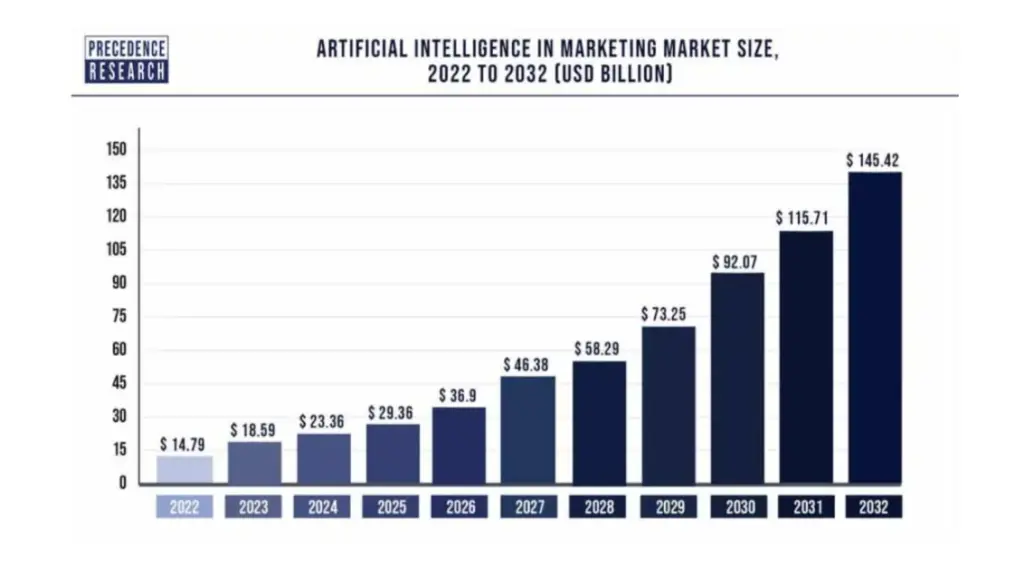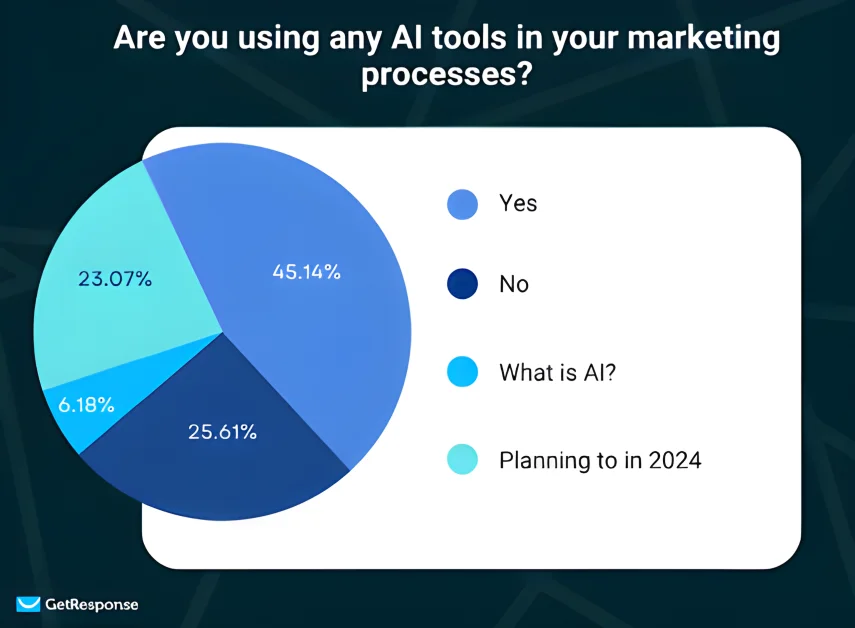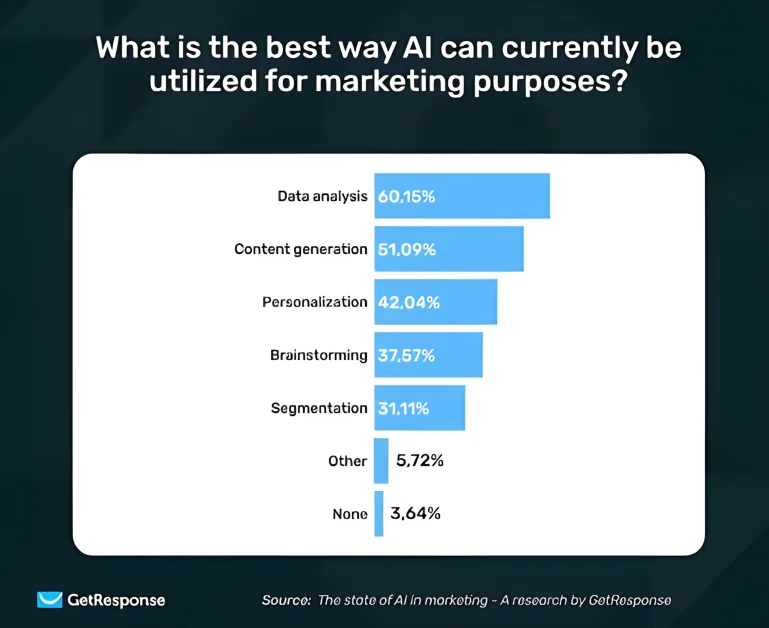Artificial Intelligence (AI) has become a cornerstone of modern marketing, transforming traditional practices and fostering new ways for businesses to engage with customers. According to a McKinsey study, AI’s potential impact is substantial, with marketing being one of the top four areas where AI can add the most value. However, despite these opportunities, many marketers have yet to embrace AI technologies fully.
Currently, the AI-driven marketing sector is poised for impressive growth, with predictions estimating that it will reach a value of $145.42 billion by 2032. This anticipated growth highlights the critical role AI is expected to play in the future of marketing.

AI Adoption Among Marketers
A survey conducted by GetResponse provides insight into the current landscape of AI adoption in marketing. The findings reveal that 45% of marketers have already integrated AI tools into their strategies. These tools are primarily used for automating routine tasks, personalizing customer interactions, and enhancing the understanding of consumer behaviors through deeper data analysis.
Despite these advancements, a significant portion of the marketing community is hesitant about AI. The survey indicates that 32% of marketers either do not use AI or must be aware of what AI can do. This highlights a pressing need for better education and awareness regarding the benefits of AI in marketing.

The Transformative Effects of AI on Marketing
AI is reshaping marketing in several key areas:
- Data Analytics: AI helps marketers sift through large datasets to identify trends and patterns that inform better decision-making.
- Content Generation: AI is increasingly used to create personalized content on a large scale, including product descriptions and social media posts, which allows marketers to focus more on strategy and less on mundane tasks.
- Personalization: Through AI, businesses can offer highly personalized customer experiences by analyzing individual behavior and preferences, leading to improved customer engagement and loyalty.
- Audience Segmentation and Targeting: AI algorithms enhance the ability to segment audiences more accurately and identify the most valuable customers, improving the efficacy of marketing campaigns.
- Programmatic Advertising: AI automates ad space buying and selling, optimizing real-time advertising efforts to maximize reach and return on investment.
- Search Engine Optimization (SEO): AI tools can analyze search data and user behavior to optimize website content and improve search rankings.

Challenges to AI Adoption in Marketing
While AI presents numerous opportunities for marketers, several challenges hinder its broader adoption:
- Data Security: Handling sensitive customer data raises concerns about privacy and security, deterring some marketers from using AI.
- Uncertain Regulations: The evolving legal landscape around AI and data privacy creates uncertainty, making some companies cautious about adopting AI technologies.
- High Implementation Costs: The cost of integrating advanced AI tools into existing systems can be prohibitive, especially for smaller firms.
- Skills Gap: There is often a lack of necessary skills within marketing teams to effectively implement and utilize AI, requiring significant training and possibly new hiring.
Overcoming Barriers to AI Adoption
To address these challenges, marketers can adopt several strategies:
- Education and Training: Enhancing skill sets through continuous learning and training can help demystify AI and encourage its adoption.
- Pilot Projects: Starting with small-scale pilot projects can demonstrate AI’s potential benefits without significant initial investments.
- Collaboration with Experts: Partnering with AI experts can guide the integrating AI smoothly into existing operations.
- Transparency and Communication: Communicating the benefits and limitations of AI can help build trust and alignment among all stakeholders.
- Continuous Monitoring: Regularly assessing the performance of AI implementations allows for timely adjustments and improvements.
Despite the hurdles, AI’s marketing benefits are clear. It offers businesses the tools to better understand their customers, personalize experiences, and optimize their marketing efforts efficiently. As more companies recognize these benefits and adopt AI, the marketing landscape will continue to evolve, becoming more data-driven and customer-centric.
Like this article? Keep up to date with AI news, apps, tools and get tips and tricks on how to improve with AI. Sign up to our Free AI Newsletter
Also, come check out our free AI training portal and community of business owners, entrepreneurs, executives and creators. Level up your business with AI ! New courses added weekly.
You can also follow us on X